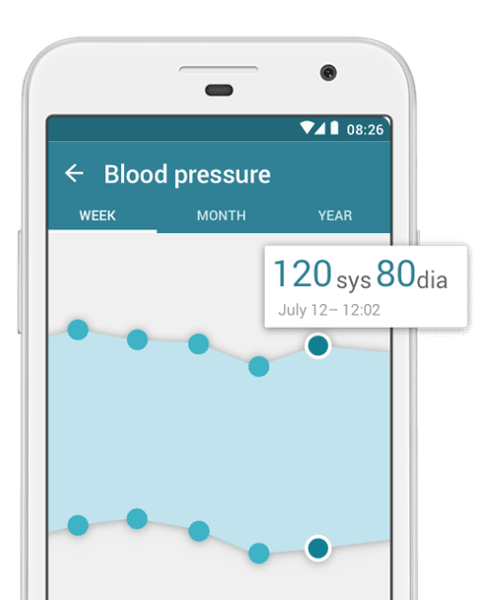The signs of heart disease and other cardiovascular conditions can occur all over your body, from your head down to your toes. The link may not be obvious, and people may subsequently ignore such signs. Here are four you should be aware of, a couple of which may surprise you.
Swollen Feet and Ankles
There are plenty of reasons why you may experience swelling in your feet or ankles, many of which should not be a cause for concern. It could be a result of a hard day of walking, or possibly an isolated injury such as a sprain.
However, it could also be a symptom of a more serious condition relating to your heart and cardiovascular system.
Chronic venous insufficiency (CVI) means your veins struggle to return blood to your heart. This is most commonly caused by blood clots impeding the blood flow, or varicose veins – which means the valves preventing the backwards flow of blood are damaged.
While varicose veins can occur anywhere, your legs are the most likely body part to be affected.
An estimated one in four women and 15% of men live with CVI in the US.
Swelling of your feet and ankles is a common symptom of chronic venous insufficiency, which can be treated with compression stockings, medication, or surgery. If left untreated, it could lead to serious and potentially life-threatening complications such as deep vein thrombosis.
Another cardiovascular disease related to feet and ankle swelling is congestive heart failure (CHF).
Congestive heart failure means your heart is unable to fully perform its job of pumping blood around the body.
It can lead to edema, meaning blood vessels leak fluid, causing surrounding tissue to swell. Edema commonly occurs in feet, ankles, and legs (called peripheral edema) simply because of gravity.
The swelling often leaves an indent when pressed with your finger (called pitting edema).
Coronary heart disease is far from the only cause of edema, which can also be brought on by certain medications or pregnancy, as well as other conditions such as liver disease. In any case, it should not be ignored.
Similarly, swelling in your feet and ankles is not a sure sign of a cardiovascular condition, but it is worth taking the link into consideration – and knowing your risk of heart diseases – should you ever experience it.
Male-Pattern Baldness: A Precursor for Heart Disease?
The link between male-pattern baldness (androgenetic alopecia) and heart disease has been the subject of some debate over the years.
A 1979 study found “no association between coronary artery disease (CAD) and male-pattern alopecia.”
Subsequent studies have delivered mixed results. As recently as 2015, a study concluded that “there was no relation between presence, severity and age of occurrence of male pattern baldness and Gensini and Rentrop scores, which are important measures of presence and severity of CAD.”
Two years prior to that, however, Japanese researchers said men balding on the crown of the head were 32% more likely to have CAD.
And one of the most recent studies, performed in India and enrolling on over 2,000 men under the age of 40, also found a link between premature baldness and CAD. It also linked premature greying to the disease.
The age group of the latter study is significant, as the well-established risk factors (high blood pressure, cholesterol levels, obesity etc.) are less effective at detecting CAD in younger people.
If androgenetic alopecia really is a sign of heart disease, it may help make detection easier at a younger age.
What about women?
Despite the commonly-used term, male-pattern baldness, androgenic alopecia is not a gender-specific condition. In women, however, it tends do cause hair to thin but not recede and does not usually lead to baldness.
A unique 2005 study specifically investigated the connection between androgenic alopecia and CAD in women under 55 years old.
It found the connection to be “statistically significant,” further corroborating the studies performed on men that have found a positive link.
If the link really does exist, the question that remains unanswered is: why?
Dr. Kamal Sharma, the principal investigator on the study performed in India, suggested that “the possible reason could be the process of biological ageing, which may be faster in certain patients and may be reflected in hair changes.”
Another theory is that the hormones that regulate hair follicles also influence cardiovascular activities, particularly those of androgens such as testosterone in men.
However, until there is evidence directly connecting the mechanisms of androgenetic alopecia to those of heart disease, nothing can be done to mitigate the risk.
Ultimately, androgenetic alopecia is not a controllable risk factor for CAD.
However, the evidence suggests there is a reasonable chance that some of the underlying causes of premature hair loss are shared with those of heart disease.
Being aware of the possible link means those living with androgenetic alopecia – both male and female – can be more alert to symptoms of heart disease. It may even act as encouragement to pay better attention to risk factors for CAD that are controllable – such as diet and exercise.
Other posts you may be interested in on the MyTherapy blog:
- “A Laugh a Day…” – 3 Remarkable Facts About Heart Disease
- 8 Facts You Should Know About the Most Common Cardiovascular Diseases
Heart Palpitations
Heart palpitations are common and not always a cause for concern.
Types of palpitations that are generally harmless are premature atrial contractions and premature ventricular contractions, depending on which chamber of the heart is affected.
They can be caused by anxiety, stress, alcohol, caffeine, nicotine, or strenuous exercise.
Because they are usually harmless, many people will brush such heart palpitations off and do not consider them to be a serious problem.
However, underlying conditions can also cause an irregular heartbeat. Such conditions are called heart arrhythmias, one of the most common being atrial fibrillation, and should not be ignored.
Those with atrial fibrillation are five times likelier to have a stroke than the general population.
Other heart arrhythmias cause the heart to beat too fast (tachyarrhythmias) or too slowly (bradyarrhythmias).
Heart arrhythmias may be treated with lifestyle changes, medication, or surgery, or may not require treatment at all. It depends on the type of arrhythmia and the severity, which can only be determined by a doctor.
The key is understanding when a heart palpitation may be a sign of such a condition, so you can have it evaluated.
One sign is when palpitation occur but none of the previously mentioned common causes (anxiety, stress, alcohol, caffeine, nicotine, or strenuous exercise) are present.
Frequent, long-lasting, or more severe palpitations should also be a red flag.
If heart palpitations are accompanied by other symptoms, such as chest pain, faintness, shortness of breath, or dizziness, you should seek emergency medical attention immediately.
As mentioned, heart palpitations are common and usually harmless. However, understanding when they may be a sign of something more serious is important in mitigating the risk of a heart attack, cardiac arrest, a stroke, and other related complications.
Snoring & Sleep Apnea
An estimated 40% of adult men and one in four adult women snore.
Many people simply accept it as an unfortunate fact of life and never seek medical attention for it.
However, if you snore heavily, you may be living with obstructive sleep apnea, which can have serious implications for your heart.
Obstructive sleep apnea causes your breathing to temporarily stop while you sleep because of the muscles in your throat relaxing.
It can happen repeatedly throughout the night. The subsequent drop in oxygen levels can increase your blood pressure and damage your cardiovascular system, increasing your likelihood of heart failure, heart attack, heart arrhythmia, and stroke.
Snoring is just one symptom of sleep apnea and doesn’t occur in every case. Others include feeling tired and irritable, even having had a full night’s sleep, and waking up with a dry mouth and/or headache. You may also find yourself gasping for air during sleep.
Heavy snoring, however, is the most recognizable symptom and should not be ignored. Doing so could mean ignoring a significant risk factor for cardiovascular diseases.
If you are a heavy snorer and have never spoken to a doctor, it is worth doing so sooner rather than later.
Treatment may not only help you achieve a better night’s sleep, it could protect your heart from serious complications.
Take a look at some of the other posts on the MyTherapy blog:



